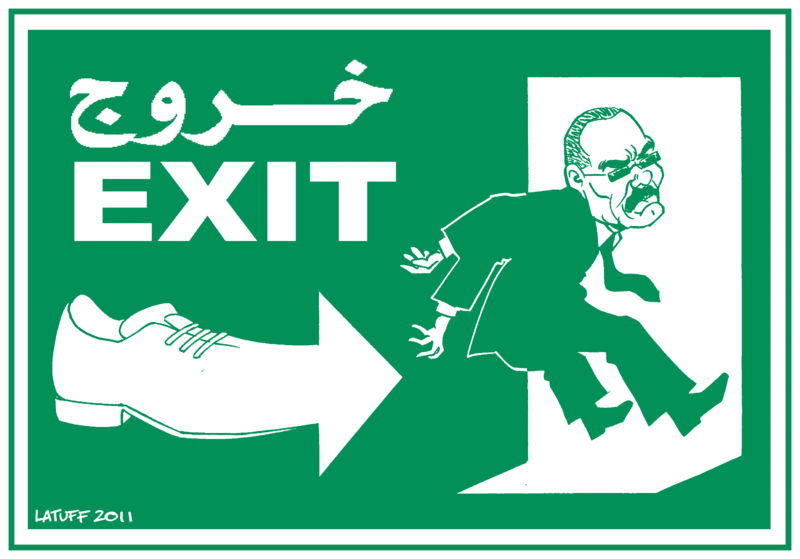Saleh's Medical Treatment
Washington's goal should be to try to be avoid being muddied by what inevitably will be a very messy situation in Yemen.
 The most delicate visa application the State Department has handled in quite some time comes from Ali Abdullah Saleh, the Yemeni president who is supposed to be on his way out of office but doesn't seem to be in the mood for retirement. Saleh has become a prime Arab Spring target as a longtime strongman whose departure many Yemenis now believe is worth fighting for in the streets. If Saleh comes to the United States, it would ostensibly be for medical treatment. He no doubt really does need additional medical treatment; he was seriously injured in an attack in June. Saleh himself, however, has most recently said he feels “fine” and that if he makes the trip it would be less for health care than “to get away from attention.” The difficulty of the issue is reflected in split editorial opinion. The New York Times says let him come here; the Washington Post says keep him out.
The most delicate visa application the State Department has handled in quite some time comes from Ali Abdullah Saleh, the Yemeni president who is supposed to be on his way out of office but doesn't seem to be in the mood for retirement. Saleh has become a prime Arab Spring target as a longtime strongman whose departure many Yemenis now believe is worth fighting for in the streets. If Saleh comes to the United States, it would ostensibly be for medical treatment. He no doubt really does need additional medical treatment; he was seriously injured in an attack in June. Saleh himself, however, has most recently said he feels “fine” and that if he makes the trip it would be less for health care than “to get away from attention.” The difficulty of the issue is reflected in split editorial opinion. The New York Times says let him come here; the Washington Post says keep him out.
The wiser course is to keep him out. Saleh's case is a prime example of a situation in which the perceptions of U.S. motivations and interests will differ substantially from actual motivations and interests, and it is one in which the perceptions will matter more. If the United States admitted Saleh, it would be for the laudable reasons not just of tending to his wounds but of increasing the chance of a constructive political process taking hold in Yemen. With Saleh no longer in his home country as a target of wrath in the streets and as an on-scene manipulator, perhaps a modicum of stability would ensue. But that's not how most Yemenis and probably most Arabs would see the U.S. role. Saleh's presence in the United States would be perceived as confirmation that he is America's man and remained so no matter how much he had been rejected by his own countrymen. The United States would thus share in whatever opprobrium or hatred was directed at the former strongman. Any suspicion that Saleh was continuing to manipulate events in Yemen from afar would be accompanied by the belief that the United States was intentionally letting him do so. These perceptions would foster the image of the United States being on the wrong side of the popular tide that is the Arab Spring.
It would indeed be helpful to Yemeni politics for Saleh to leave the country, but that does not mean the destination has to be the United States. Nearby countries have even more of a stake in Yemen and possible spillover effects of instability there than the United States does. Saleh's medical records must still be in Saudi Arabia, where he initially went for treatment after his injuries. Pakistani president Asif Zardari recently took a politically convenient trip for medical care in Dubai. Let the peninsular Arabs be out in front on this one.
No one, the United States included, will be able to stage manage events in Yemen over the coming months. Any thoughts of trying to make a difference by controlling Saleh's actions or communications while in the United States should be dispelled. The basic U.S. goal should be to try to be avoid being muddied by what inevitably will be a very messy situation in Yemen.
